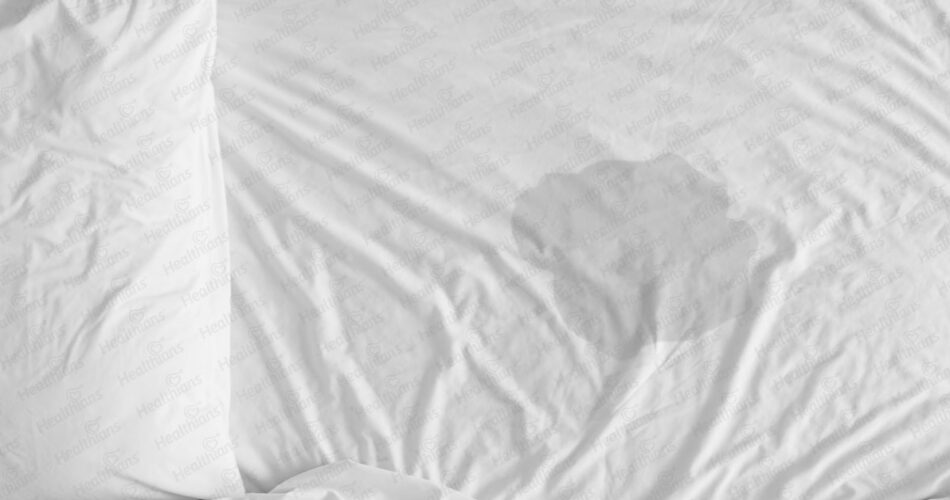Bed-wetting, also known as nocturnal enuresis, is the unintentional release of urine during sleep. It is a common problem among children and a part of normal childhood development up to the age of 5 years. However, it can also occur in adults, which can be embarrassing and distressing.
Adult bed-wetting — also called sleep enuresis — can have various causes and may require medical intervention or lifestyle changes to overcome. Read on to know more about the condition.
Symptoms
The symptoms of bed-wetting in adults include:
· Unintentional wetting of the bed during sleep
· Frequent urination during the day
· Strong urge to urinate that is difficult to control
Causes of Bed-Wetting in Adults
Here are some of the causes of bed-wetting in adults:
Overactive bladder
Nocturnal enuresis can occur when the bladder muscles, known as detrusor muscles, become overactive. In fact, up to 70-80% of adult bed-wetting patients have an overactive bladder muscle. The conditions can make it difficult for an adult to hold urine, especially during the night.
Urinary tract infections
Medical conditions in a person who suffers from an infection in the urinary tract can lead to bed-wetting in adults.
Medications
Some medications can cause bed-wetting in adults. For instance, side effects from sleeping pills, insomnia medications, and psychiatric medications can increase the risk. Similarly, sedatives can relax the bladder muscles, leading to incontinence during sleep.
Medical conditions
There is a lot of research that suggests that bed-wetting is caused by an underlying health problem. These issues can be related to prostate disorders in men or pelvic organ prolapse in women.
Psychological issues
Studies reveal that severe psychological issues, such as anxiety, depression, or post-traumatic stress disorder (PTSD), can cause bed-wetting in adults. These conditions can lead to impaired control of the bladder nerves and muscles, leading to incontinence during sleep.
Alcohol and caffeine
Alcohol and caffeine are diuretics, and their overindulgence can increase urine production and irritate the bladder.
How to Overcome Bed-Wetting in Adults
Here are some ways you can overcome bed-wetting:
Limit fluid intake
One way to overcome bed-wetting in adults is to limit fluid intake before bedtime. It is essential to drink enough fluids throughout the day to avoid dehydration, but it is also essential to avoid drinking too much before bedtime. Limit the intake of liquids that can stimulate your bladder, such as caffeine and alcohol.
Kegel exercise
Kegel exercises can strengthen the pelvic floor muscles, which can help an adult hold urine better. To perform Kegel exercises, an adult needs to squeeze the muscles used to stop urine flow for 10 seconds, then relax them for 10 seconds. Repeat this exercise several times a day.
Bladder training
Bladder training involves scheduling a visit to the bathroom at scheduled times and gradually increasing the time between bathroom breaks.
Cognitive Behavioral Therapy (CBT):
Cognitive-behavioral therapy (CBT) can help an adult identify and change negative thought patterns and behaviors that contribute to bed-wetting.
The bottom line
Bed-wetting in adults can be a distressing and embarrassing problem. Adults may feel ashamed to talk about a condition that they often think of as a ‘kid thing.’ This can have a negative impact on their self-esteem and relationships. Additionally, it can also lead to disrupted sleep and cause adults to wake up frequently during the night, thereby causing fatigue and daytime sleepiness.
However, it is essential to understand that it can have various causes and can be overcome with medical intervention or lifestyle changes. Limiting fluid intake before bedtime, Kegel exercises, bladder training, medication, alarm therapy, and cognitive-behavioral therapy are some of the ways to overcome bed-wetting in adults.
If you experience bed-wetting, there is no shame in admitting that you have a bed-wetting issue. Indeed, the first step in getting treatment is admitting that your body isn’t working the way you’d like it to. You’ll be relieved to learn that there are effective, proven treatments available. It is essential to speak with your doctor, who can help you identify the underlying cause and provide the necessary treatment.




